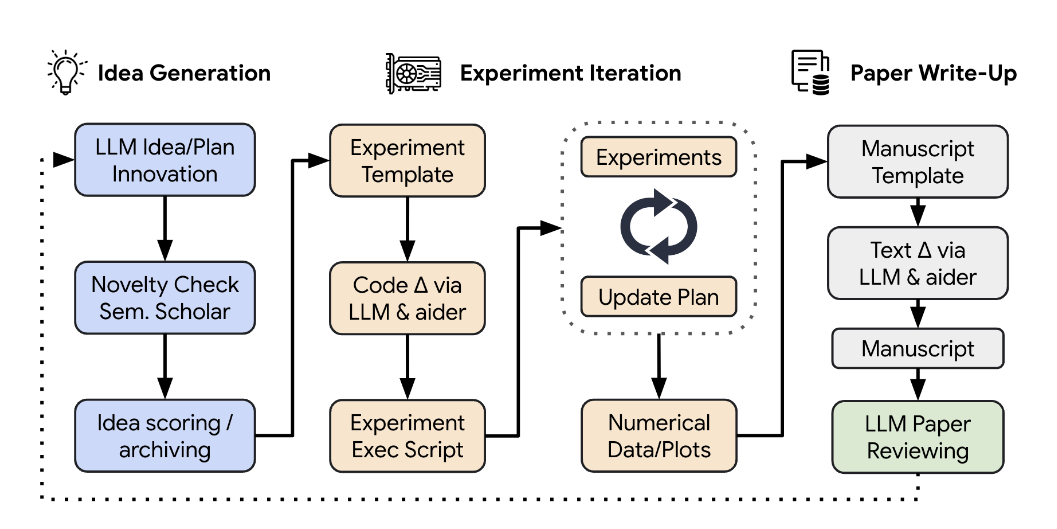Sakana AI, an artificial intelligence startup based in Tokyo, has launched a new generative AI model called AI Scientist that aims to automate scientific research discovery processes.
In a blog post, Sakana AI said The AI Scientist enables large language models (LLMs) to perform research independently. Sakana AI and researchers from the University of Oxford and University of British Columbia released a paper on The AI Scientist.
The paper outlines an AI-driven system for automated scientific discovery for machine learning that includes generating novel research ideas, writing code, executing experiments, summarizing results and presenting findings via text and visualizations.
Constellation ShortList™ Pre-Built Large Language Models For Generative AI
Sakana AI also said The AI Scientist has an automated peer review process to evaluate papers, write feedback and improve results. The process can be repeated to develop ideas.
According to Sakana AI, The AI Scientist is also designed to be compute efficient with a full paper delivered at about $15 per paper. There are flaws in the first version of papers, but the initial demonstration highlights how LLMs can be applied to scientific discovery.
Here's an overview of how The AI Scientist works.

The AI Scientist has a bevy of limitations in that it needs an existing code base as a starting point, needs computer vision and can be prone to errors. Nonetheless, the initial paper on The AI Scientist highlights an interesting use case.
Constellation Research analyst Holger Mueller said:
"Science is an interesting use case, as it lends itself very well to AI. There's plenty of public data out there, and the profession follows a rigid standardized methodology to come to scientific insights. Similarly, the process of validating and challenging insights is highly structured. Of course, anybody trying to automate scientists will face a lot of scrutiny, and we'll have to prove that it can deliver value of a daily scientist. Research. Human supervision will of course be a critical aspect, but from its overall characteristics, science lends itself very well to be automated by artificial intelligence."
Related:


